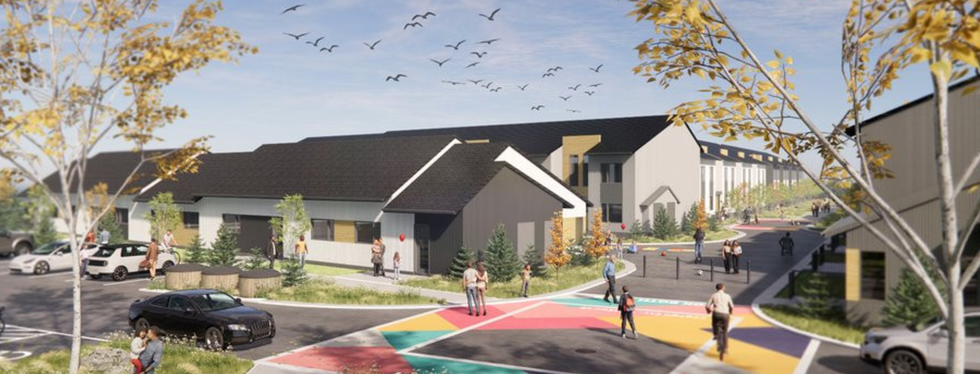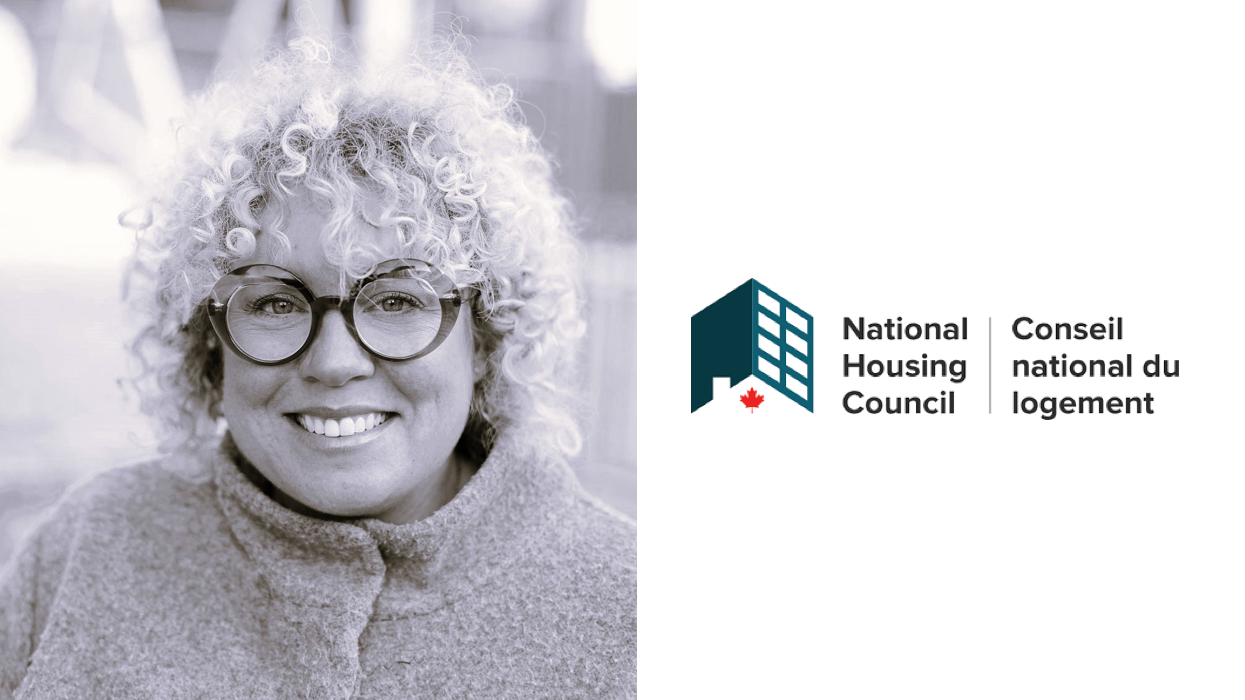Hailing from Hamilton, Ontario, Dr. Teresa Goldstein has always held a deep affection for the cities she’s called home. And with that, has come a desire to make them the most liveable they can be. In the early 2000s, she made the move out West, and it was at that point she realized she had a calling in city building.
“I have had such the privilege of working on some incredible city building work over the years, both from the private side and from the public side. I worked for Stantec for many years, and was really fortunate to have many career defining projects,” Goldstein tells STOREYS. On the public side, she’s taken on six different roles with the City of Calgary over a more than 16-year span. (And those are just a few highlights from her resume.)
“In 2016, I became Manager of Affordable Housing [for the City of Calgary]. The federal government, at the time, had gotten back into housing, and the provincial government was also looking at the changing needs of Albertans, and said, ‘We need to be more involved in housing,’” she explains. “I was really fortunate to lead the work and deliver a brand new Housing Strategy for the City, and it was the first time the City really looked at not being the lead on providing housing, but being a supporter and leveraging [not-for-profit] partnerships.”
Delivering housing, and more specifically affordable housing, is something Goldstein says she’s “enamoured [with], just 100% in love with.” It’s a passion that has motivated her to have important conversations with communities and individuals about their housing needs.
In 2022, Goldstein was asked to be on Calgary's Housing and Affordability Task Force with select members of City administration, the private sector, academia, the community, and not for profits. Together, they recommended the elements which would make up the City’s Housing Strategy for 2024-2030, which includes 98 actions to improve housing affordability.
“And some of those have already [been] put into place. The biggest piece was really catalyzing the release of city-owned land for the development of affordable housing. […] The City had a role to play in this; they had been disposing between five and seven parcels of land. But really, the Task Force recommendation was, let's get a lot of land put out to market,” she adds. “We just recently had the the opening of one of the developments that have resulted from these transactions, and the small piece I've had in this is so rewarding. It really shows we can have housing choice in every neighbourhood, and that the City is working to make sure we pull all the different levers we have to make that happen.”

“I’m deeply interested in how the City of Calgary is growing and building, and as a very new city, I was really fortunate to be able to see some of the first community change happening,” Goldstein goes on to say. “It’s led me through this fascinating conversation we're having in Canada right now, which is how does a young nation plan for the next 30 years, and as the needs of cities and the needs of people change.”
Today, Goldstein is the Chair of Calgary Planning Commission, the Director of Community Planning for the City of Calgary, and Adjunct Professor for the School of Architecture, Planning and Landscape at the University of Calgary. And in late August, Goldstein, along with Jennifer Keesmaat — both celebrated urban planners known for their work leading large-scale city building initiatives — were announced as the latest appointees to the National Housing Council: an advisory body established as a result of the National Housing Strategy Act of 2019 to ensure federal housing policy is in the best interest of all Canadians. The Council works closely with the Minister of Housing, Infrastructure and Communities.
Goldstein says her appointment stems from her work both in municipal settings, but also at the University of Calgary, where she was “deeply involved” in housing policy and the use of municipal tools to get affordable housing off the ground faster.
“How do we stack the City's levers? How do we stack land; how do we stack development approvals — let's give [affordable housing] a priority status; how do we do fee rebates — fees are often an obstacle when it comes to getting housing going, especially in the affordable housing sector; how do we give a concierge service to applicants?” she says. “Affordable housing providers are usually excellent operators. Most of them here in Calgary operate one building or a couple units here and there, so they're not developers. And so how do we provide expertise to those going through that system?”
By the time the National Housing Council was established, Goldstein knew right away that her work was well in alignment with the Council’s mission. “The work the Council does is, I would say, beyond partisan walls. It really is about looking at housing policy and looking at obstacles or looking at gaps — or in some cases, because one of the big pieces of work the Council is doing is around truth and reconciliation, allowing those an opportunity that have not been afforded a voice at the housing table for many years, if ever, that opportunity,” she says. “And so when an opportunity arose to apply, I jumped on it and was absolutely thrilled I was selected.”
As she moves forward in her new roles with the Council, Goldstein appears to have a clear idea of what she wants to focus on. For one, she wants to hone in on the provision of non-market housing.
“Housing is housing is housing — more housing, everywhere, in all forms, is what I have been saying to my own City Council — but really we know there is this portion of the market that will never be served by market housing,” she says. “The [National Housing] Council in particular has been doing some incredible work gathering up a cross-section of what is happening to scale up non-market housing in our country, and what are the real tools. So, not policy tools in particular, but what are the real solutions that are happening on the ground."
While there’s certainly a lot of pessimism when it comes to addressing housing in Canada and where we’re headed, Goldstein speaks on the topic with an undertone of the opposite: hopefulness, positivity even. “The fact that we are having these conversations, I think, is so exciting. We know there has been a move over the last 40 to 50 years from being a very rural Canada to the predominant amount of the population living in our big cities,” she says.
“The needs of Canadians have changed, and our cities, most of them were planned before we did things like telework or had Uber or needed our social organizations to be harder working — so not just have a community centre, but making sure the community centre is also our library and our fire hall and our seniors’ housing. […] Our citizens are demanding harder working infrastructure, and that infrastructure will be significantly tied to the way we live; housing is so integral to that piece. I'm really excited about the future of seeing these partnerships come together.”
- How The City Of Calgary's New Housing Land Fund Will Work ›
- After 3-Day Marathon, Calgary Approves Comprehensive Housing Strategy ›
- Jennifer Keesmaat, Teresa Goldstein Appointed To National Housing Council ›





















